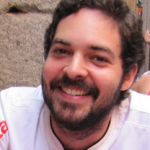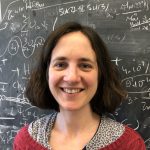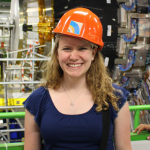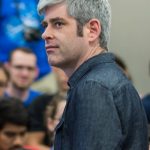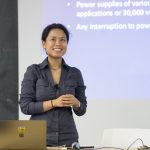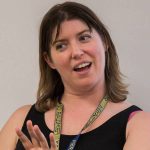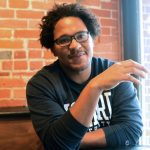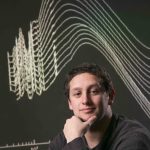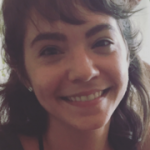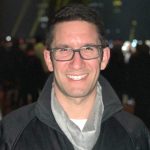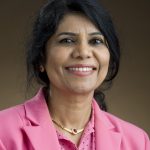Dr. Pedro Machado, Fermilab Theoretical Physicist
Dr. Machado is an associate scientist at Fermilab. He was born and raised in Brazil. He did his undergraduate work at Universidade Federal do Ceará (2007). He received his Ph.D. from University of São Paulo. Machado is a theoretical physicist working primarily in neutrino physics, and also in Higgs and dark matter physics. Before joining Fermilab, Dr. Machado spent few years in Madrid as a post-doctoral fellow, and as a Ph.D. student he visited Paris for a couple of years and Fermilab for six months. His work is focused on phenomenology: the interface between theory and experiment
Dr. Allison Reinsvold Hall, Fermilab
Dr. Karl Warburton, Iowa State University
Prof. Dan Hooper, University of Chicago and Fermilab Senior Scientist
Dr. Hooper is a professor at the University of Chicago and a member of Astrophysics Department of the Particle Physics Division at Fermilab. He received his PhD from University of Wisconsin.
He has written three books:
- At the Edge of Time: Exploring the Mysteries of Our Universe’s First Seconds
- Dark Cosmos: In Search of Our Universe’s Missing Mass and Energy
- Nature’s Blueprint: Supersymmetry and the Search for a Unified Theory of Matter and Force
Hooper has been part of Saturday Morning Physics for ten years. When not interacting with young scientists, he tries to figure out ways for Earth-bound experimenters to detect dark matter and dark energy directly in an experiment.
In 2017, Prof. Hooper was elected as a Fellow of the American Physical Society (APS).
Read more about Dr. Hooper here: http://home.fnal.gov/~dhooper/
Cindy Joe, Fermilab
Ms. Joe started at Fermilab as an accelerator operator and has been subsequently promoted to Neutrino Division Operations Support Group Member to run the underground facility for MINERvA and NOvA experiments. She earned a bachelor’s degree in physics from Reed College in Portland, OR.
Ms. Joe is deeply involved in the encouragement of young women to work in STEM fields. She said, “I think the most lasting and effective way to reduce the difficulties women and other underrepresented groups face in STEM is to normalize their presence and publicize their struggles.”
Find out more about Ms. Joe.
Ms. Joe gave a fantastic presentation on acceleration operation at Fermilab’s physics slam. Watch it now.
Dr. Mandy Kiburg, Fermilab
Dr. Kiburg is the Test Beam Facility coordinator at Fermilab. She attended New Mexico Institute of Mining and Technology, where she earned a bachelor of science degree in physics, and the University of Oklahoma, where she earned a Ph.D. in physics.
Dr. Bryan Ramson, Fermilab
Dr. Ramson is a postdoctoral researcher in the Fermilab Neutrino Division. He currently works as part of two large experimental collaborations at the cutting-edge of long-baseline neutrino physics: the currently operational Numi Off-axis Electron Neutrino Appearance experiment (NOvA), hosted by Fermilab, and the upcoming Deep Underground Neutrino Experiment (DUNE), also hosted by Fermilab. Howard Universityis his Alma-Mater and he earned his doctorate in Applied Physics on studies of nuclear anti-matter at the University of Michigan-Ann Arbor. Much of his graduate work took place as a visiting scholar on the Argonne/Fermilab particle physics experiment, E906/SeaQuest. Before going to the University of Michigan, he was a visiting scholar at the National Aeronautic and Space Administration from Howard University, primarily involved in the measurement of cloud properties in the vicinity of Washington, D.C. and the validation of a globally distributed robotic aerosol and cloud measuring system.
His current research interests involve the study of neutrino-nuclei interactions and the testing of new light sensing hardware to be included in DUNE. When he is not thinking about quarks and leptons, he enjoys reading, exercise, and video games.
Dr. Noah Kurinsky, Fermilab
My research interests lie in studying departures from the standard model and General relativity, by attempting to detect particulate dark matter and looking for short distance gravitation which departs from classical expectations.
Dr. Christian Herwig, Fermilab




